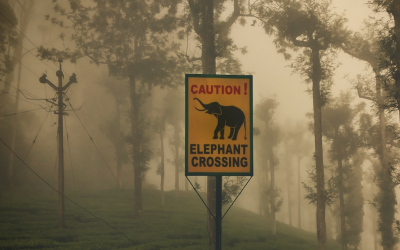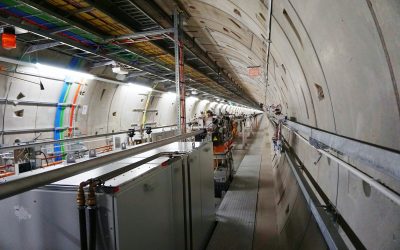Science as we know it today would be simply impossible without a multitude of critical services that enable scientists to connect and to collaborate, to share and to disseminate knowledge. These infrastructures often remain in the background and only become visible when they no longer work. But what kind of infrastructure fits the demands of increasingly networked research? Who should build it and make it available? Who may use it and who may not? Our next dossier will deal with the topic of research infrastructure. Join us on the search for answers in the upcoming weeks!
What is your take on Research Infrastructures? We welcome contributions on this topic.
A Journey from researcher to influencer: TikTok as a methodological tool
Tinca Lukan explores TikTok’s use in ethnographic research on social media influencers, detailing how she integrated it into her PhD study on influencers’ working conditions in Slovenia.
Science and Society need more interaction instead of mere communication. An Interview with Volker Meyer-Guckel
In this interview Teresa Völker speaks with Dr. Volker Meyer-Guckel about challenges and possible futures of science communication.
Using RSS to keep track of the latest Journal Articles
This hands-on guide helps you setting up an RSS reader and build a personalized paper feed from your favorite journals.
Digital transformation ahead of schedule. How Ukrainian universities are surviving and transforming in times of war
Kateryna Suprun on the fast-track digital transformation Ukrainian universities are currently going through in the face of the Russian war of aggression.
Sharing knowledge: Impact of Covid-19 on digital teaching
In this short analysis the three authors aggregate findings from four research projects to answer questions regarding the accelerated digitalisation of education due to the Covid-19 pandemic.
Surveillance Publishing
Jefferson Pooley on Surveillance Publishing, its history in modern societies during the last couple of decades, and the potential costs of these practices for both service providers and their users.
ploc – an app to discover and improve research
The pocket library for open content is an application designed to simplify the search for openly available research content and lay ground for a basic quality assurance mechanism.
How to find the right Survey Tool: Problems and Proposals
Sami Nenno on the typical problems of the most common service providers for conducting online surveys and how to find the right one for your own project.
When your journal reads you
Renke Siems on user tracking on science publisher platforms, its implications for their individual users and ways to face this issue
A Year in Elephants
A look backwards from the editorial team.
The impact of bioenergy research
Glaucia Souza on the introduction of BioFuels in Sao Paulo and all over Brazil, her activities at BIOEN and the transfer of technologies for more sustainable forms of mobility into practice.
The Science Must Go On
In this opinion-piece Katharina C. Cramer discusses the impact of the Corona-Crisis on large scale research infrastructures and their limits of performance in the current situation.
Higher Education in Crisis Times
In this interview with Teresa Völker, Prof. Villa talks about the initiative “Nicht-Semster” (calling for a cancellation of the regular spring semester during the Corona crisis) and how the crisis impacts the infrastructure of the german higher education system.
Improving software infrastructure in multidisciplinary research
Dealing with code, robots and specific domain knowledge is a huge challenge. How can we improve the technical infrastructure?
Challenges in Building Innovative, Sustainable and Open Research Infrastructures
A number of social, technical and political-economic problems call to rethink the current practice of funding and governing research infrastructures.
Critical research infrastructure: The importance of synthesis centers
In this piece, Specht, Corrêa, Belbin and Loescher elaborate their thoughts on the role of synthesis centers in facing today’s challenges of research.
Ideas as Infrastructure
Øyvind Paasche on the immaterial kinds of infrastructure in science and the fundamental role of trust, transparency and openness.
An Accelerator for Science in Latin America: FAPESP
A driving force for Latin America’s research infrastructure: The São Paulo Research Foundation


















